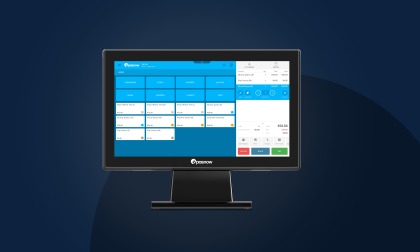6 Fascinating Trends in the Retail Industry for 2022-2023
The 2020s are proving both fascinating and scary for those in retail. With the instability caused by Covid 19, new technologies, and continually changing consumer habits, making the right decisions has never been more difficult.
In such an environment, following industry trends is vital. Fortunes will be won and lost in the coming years as established retail giants fall and the big new names rise on the wave of innovations that provide consumers with the experiences and products they crave.
So here are Epos Now’s retail business trends to watch out for over the next few years.
1. A more balanced battle between eCommerce and in-store trade
It’s no longer unusual to hear of retailers doing away with their brick and mortar stores, and there has been tension among offline retailers as the years pass and the success of online retail grows.
In the UK, the Government are currently consulting with experts to decide whether or not to introduce an online sales tax in an attempt to aid shops. Marks and Spencer have hitback against this, arguing it will hurt the high street as retailers cut away the less profitable, physical sides of their businesses[1].
Over the coming years though, some are predicting a balancing between online and in-store sales as both forms of commerce adapt to the changing times and consumers enjoy the advantages that both have to offer.
Forbes have observed digital fatigue in some consumer habits and the joy of the high street shopping spree has been rediscovered as Covid fears lessen as lockdown memories become more and more distant[2]. Foot traffic remains steady in malls and high streets worldwide despite the convenience of online shopping. Physical shopping habits are proving enough to ward of the eCommerce threat from brick and mortar doors.
Retail stores have shown themselves more than able to combat the internet by offering personalized experiences and stronger customer engagement with a more lively, personal shopping atmosphere than the online world can offer.
2.Closures to continue in a volatile retail climate
Despite the balance between eCommerce and the high street, the world of retail is changing quickly as a number of forces act on businesses and consumers alike to create obstacles and opportunities for all.
The consequence of this is that formerly untouchable retail giants are finding their positions under threat from upcoming and expanding competitors. In the US, Macys lost 38 locations during 2021, but the big-name department store continued to lose sites moving into 2022 with six more closing between February and April this year[3].
However, this is not necessarily an across-the-board decline, but is instead creating gaps in the market for other businesses to fill. This volatile climate is highlighting the importance of adaptability in retail and those businesses that spot these opportunities and mould their businesses accordingly are likely to flourish as a result.
In the market for an EPOS that will be loyal to you?
Epos Now's retail solution provides an all-in-one answer to your store's needs.
Benefit from lightning-quick product and stock management, detailed analytics, and choose from hundreds of handy integrations.

3. Sustainable shopping: the new normal
A continuous retail consumer trend across all of society that is becoming increasingly relevant is sustainability. Whether that’s alternative meat options, recycled products or local produce, consumers across all parts of the industry are more and more considerate of the impact their purchases have on the environment.
Retailers are finding newer, better ways to provide sustainable options for their customers. One of those newer trends is using technology to target products and cutting away the less relevant or economical products from the shelves. The result could lead to simpler supply chains reducing carbon footprints. For shoppers, this means fewer, more tempting options and a more tailor-made shopping experience.

4. The wider use of voice-search technology
Back online, one of the most fashionable new trends is voice-search. Google has confirmed that 20% of searches last year were completed without the use of a keyboard[4]. Amazon’s Alexa has been a huge success, but the application of this hugely popular function is expected to spread away from big tech and search engines and onto more and more websites.
Just as retailers without web stores are missing out on a portion of the market, eCommerce retailers that work with voice-search technology are expected to move to the fore over the coming years.
Adapting online stores to respond to voices through existing providers might be one of the ways of getting ahead. The novelty of this technological breakthrough has not yet worn off and this might prove to be a counter to the digital fatigue that has slowed the growth of the online marketplace.
5. Serious shopping on social media
Facebook Marketplace has never really shaken the retail world. However, the convenience of commerce on platforms consumers visit multiple times each day has not been lost on the social media companies.
The growth of social commerce is expected to rise as companies like Instagram launch their own commerce spaces for businesses to fill[5]. This will lead to new generations of consumers being sold products by retailers recognising the social media zeitgeist and pushing their products on these hugely popular websites and apps.
This may manifest as an extension of local inventory advertising or social media marketing. But the emergence of these new store spaces is bound to lead to a new field of competition between these companies that smaller retailers in particular are well-positioned to benefit from.
6. A new, bigger wave of AI: AI is captain
Software has been used in business analytics for many years. But as computer technology grows more sophisticated and large teams of staff become more expensive and less effective relative to technology, retailers with more advanced systems are expected to leap ahead.
As more businesses switch to cloud computing to allow them to run smoothly in an omnichannel, online and offline retail world, investing in software that can work within the business cloud in multiple fields will save money and expose businesses to flaws in their products or services they otherwise may not have seen.
AI is likely to become more and more instrumental in fields such as marketing and data analytics in particular, but will be influential in almost every area of retail. This will include (though perhaps not so soon as 2023) customer service.
Cloud technology at its finest: Epos Now
Few current retail trends are as obvious as an Epos Now solution. Epos Now systems can integrate with the very latest technology in every area of retail. This includes online integrations and marketing tools to help keep your business at the forefront of retail market trends.
Epos Now customers also benefit from:
- A variety of software and hardware options that help create a bespoke system that works around your business needs
- Epos Now Payments, an integrated card payment solution with blended rates, allowing all finances to be managed in one place
- Hundreds of apps options including accountancy integrations with Sage and Xero, and fantastic loyalty add-ons
- Top of the range EPOS reporting on products, customers, inventory and more, ensuring you’re able to spot trends in your business as soon as they arise
To find out more about Epos Now’s retail solutions, submit your details below and receive a call from a member of our expert team.
Join Epos Now for modifiable software and flexible hardware to suit your industry
trusted by over 40,000 businesses worldwide



